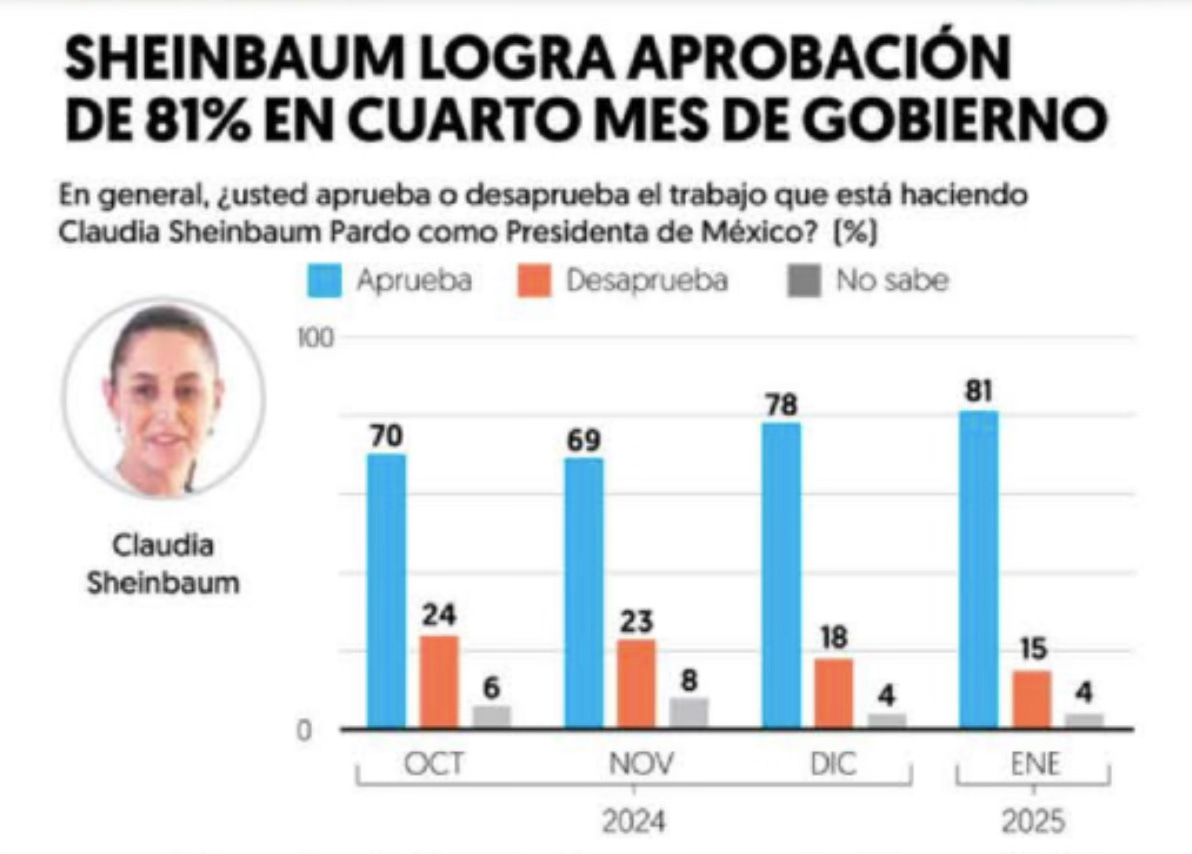Anti-nepotism setback shows limits of Sheinbaum's power
'Sheinbaum doesn’t look good when (Congress) tells her to go fly a kite'
A version of this story ran in The Mexico Brief.
Mexico’s Congress has largely rubber stamped constitutional changes since being sworn in on September 1st. Congress approved much of the suite of constitutional changes announced in February by then-president Andrés Manuel López Obrador – most notably the judicial reform, which puts all judges to popular vote, including supreme court justices.
His successor, President Claudia Sheinbaum, appears to be having a harder time with her own initiatives, however.
The Senate this week modified a Sheinbaum initiative to limit nepotism in politics and scrap re-election – with the latter only being introduced on the municipal and legislative levels in a 2014 political reform.
The president’s plan would have prohibited the relatives of outgoing politicians from running to replace them, starting in the 2027 election cycle. But the Green Party (PVEM) – key allies of the ruling Morena Party and a controversial presence in Mexican politics – rebelled, prompting a modification in the initiative so the prohibition on nepotism would come into effect in 2030 rather than 2027. (The original initiative from Sheinbaum proposed scrapping re-election in 2030).
Politics as a family business
Nepotism is an old practice in politics – especially Mexican politics, where mayors and governors routinely push spouses and other relatives to succeed them. It also extends across Mexican at large, according to analysts, as nepotism and cronyism serve as proxies for the rule of law in what’s still a low-trust society.
Political nepotism extends across all parties, too. PAN has been dominated by old family names such as Calderón. The PRI has had plenty of nepotism, though it historically opposed reelection – ostensibly because no-reelection was a demand of the Revolution. It also provided more opportunities for PRI bosses to reward loyalists with positions in public office (and opportunities for enrichment). It continues for a simple reason, says Bárbara González, a political analyst in Monterrey:
“Politics continues being seen as a vehicle personal enrichment and social mobility. Politics is a family business for these politicians. (Nepotism) also is not punished.”
Much of the old PRI has colonized Morena, along with its nepotistic practices. It’s something the Morena founder AMLO has never seemed to take issue with, preferring to incorporate old family political fiefdoms into his political movement – however unpresentable – rather than fight them.
Ruling party families
Morena also featured its own family dynasties – nepotism? – such as the Alcaldes and the Batres (with the former featuring a former interior minister-turned Morena party president and the current CDMX prosecutor and the latter a former CDMX interim mayor and a supreme court justice). Morena cited supposed nepotism in the judicial branch as a pretext for pushing the judicial reform.
Former presidential aspirant and current economy minister Marcelo Ebrard proposed appointing one of AMLO’s sons to a cabinet-level post, which would effectively serve as a liaison with party founder after he left office. Andrés Manuel López Beltrán declined the offer, though he ended up in a senior party position with Morena, however.
2027 elections
Three political families are expected to try perpetuating themselves in power in 2027 under the Morena and PVEM banners.
Sen. Saúl Monreal, brother of Ricardo Monreal, a former Morena presidential aspirant (“corcholata” in AMLO’s parlance) and the party’s lower house leader, was expected to run for governor of Zacatecas – where Ricardo was previously governor and another brother, David currently holds the job.
Ricardo also unsuccessfully pushed his daughter, Caty, in the Cuauhtémoc borough of Mexico City last year and tried using rules prohibiting gender violence in politics to overturn the election. During the campaign, opposition candidate Alessandra Rojo de la Vega mocked Caty’s parentage, alleging she was candidate because of family ties and calling her, “La Señora Monreal, de la Familia Monreal, del Clan Monreal.” The electoral tribunal ultimately ruled in de la Vega’s favour, though Caty Monreal, 32, ended up with another political appointment.

Sen. Félix Salgado Macedonio, who was replaced on the ballot in Guerrero by his daughter, Gov. Evelyn Salgado in 2021 after being disqualified – not for the multiple sexual assault accusations against him, rather campaign finance irregularities – was expected to run to succeed her.
Sen. Ruth González was expected to run to replace her husband, Gov. Ricardo Gallardo in San Luis Potosí for the Green Party in 2027.
Sheinbaum reacted to the Senate’s modifications with her usual rhetorical tropes in the mañanera (morning press conference). She spitballed. Then highlighted the reaction of Morena party president Luisa María Alcalde – whose family features prominently in Morena politics – proposing changes to the party statues so the nepotism ban would feature cover its candidates in 2027.
“People don’t like nepotism,” Sheinbaum said. “My recommendation: they’re young, they should wait until – what? – 2036?”
She finally took a shot at her critics – as she often does in the mañanera – while effectively spinning the defeat in congress as evidence of there not being any rising authoritarianism in Mexico:
“Our adversaries, the commentators, the know-it-alls, because they know everything, say: ‘It’s the president’s weakness.’ Look at the contradiction of these characters. … They say: ‘There’s authoritarianism in Mexico because the president decides everything. … But now they say: ‘The president has no strength.” In other words, what they want is for the president to impose, right?’”
Political defeat for president?
Commentators couldn’t help but read the senate vote as a defeat for Sheinbaum, while wondering aloud if the “weakness” she mentioned was actually her predecessor’s influence.
Sen. Adán Augusto López, former interior minister under AMLO and a candidate for the 2024 Morena presidential nomination, presented the motion, along with Sen. Manuel Velasco, former Green Party governor of Chiapas.
López made little effort to defend the initiative, other than making some snarky comments about having full support. But the messenger was the message for many political observers, who pointed to López’s perceived closeness with AMLO as a former Tabasco governor.
“Of course, the approval was unanimous since it benefits all cacicazgos, regardless of the party,” Alfredo Campos Villeda, director of the Milenio newspaper, wrote in a column. “Does anyone believe that the Morena leader in the Senate is acting on his own?”
The setback on nepotism wasn’t the first for Sheinbaum. Her pick for head of the National Human Rights Commission was passed over for the incumbent commissioner, Rosario Piedra – despite her dreadful track record. Analysts interpreted the Piedra pick as AMLO asserting his preference, despite maintaining a low profile since leaving office.
Weak president?
Sheinbaum enjoys an 81 per cent approval rating, according to the latest poll in El Financiero. She proven herself to be authentically popular – helped by a hapless opposition, her predecessor’s own popularity and her skillful response to the threats from US President Donald Trump.
But analysts point to her lacking influence over her own party. González, the Monterrey analyst, pointed to Sheinbaum being unable to push her own candidate for Mexico City mayor, the now-security secretary Omar García Harfush – even though she was previously mayor – who was passed over for pro-AMLO candidate Clara Brugada. A similar pattern emerged with her political appointees and cabinet picks.
Sheinbaum pushed the anti-nepotism bill “to undo the family networks loyal to AMLO and impose her own people,” González said. “Now we have to see who Morena will listen to. If AMLO says (the party statute against nepotism) will not apply, it will not apply.”
In the meantime, the congressional setback leaves the president stuck in the shadow of rivals – presumably aligned with AMLO. It also shows Morena dependence on the Green Party, which has a history of extracting high rents from its allies.
“Sheinbaum doesn’t look good when (Congress) tells her to go fly a kite,” González said.







Seldom pure and never simple applies to politics as much as the truth, to borrow from Oscar Wilde. Morena is a coalition (besides being in colaition iwith two minor parties) and one expects some time servers, opportunists and a few crooks in the mix. That Sheinbaum herself enjoys such high approval wouldn't necessarily apply to all members of the coalition, and it's unreasonable to expect every bill to sail through without some sausage making and tweaking to get everyone on board.